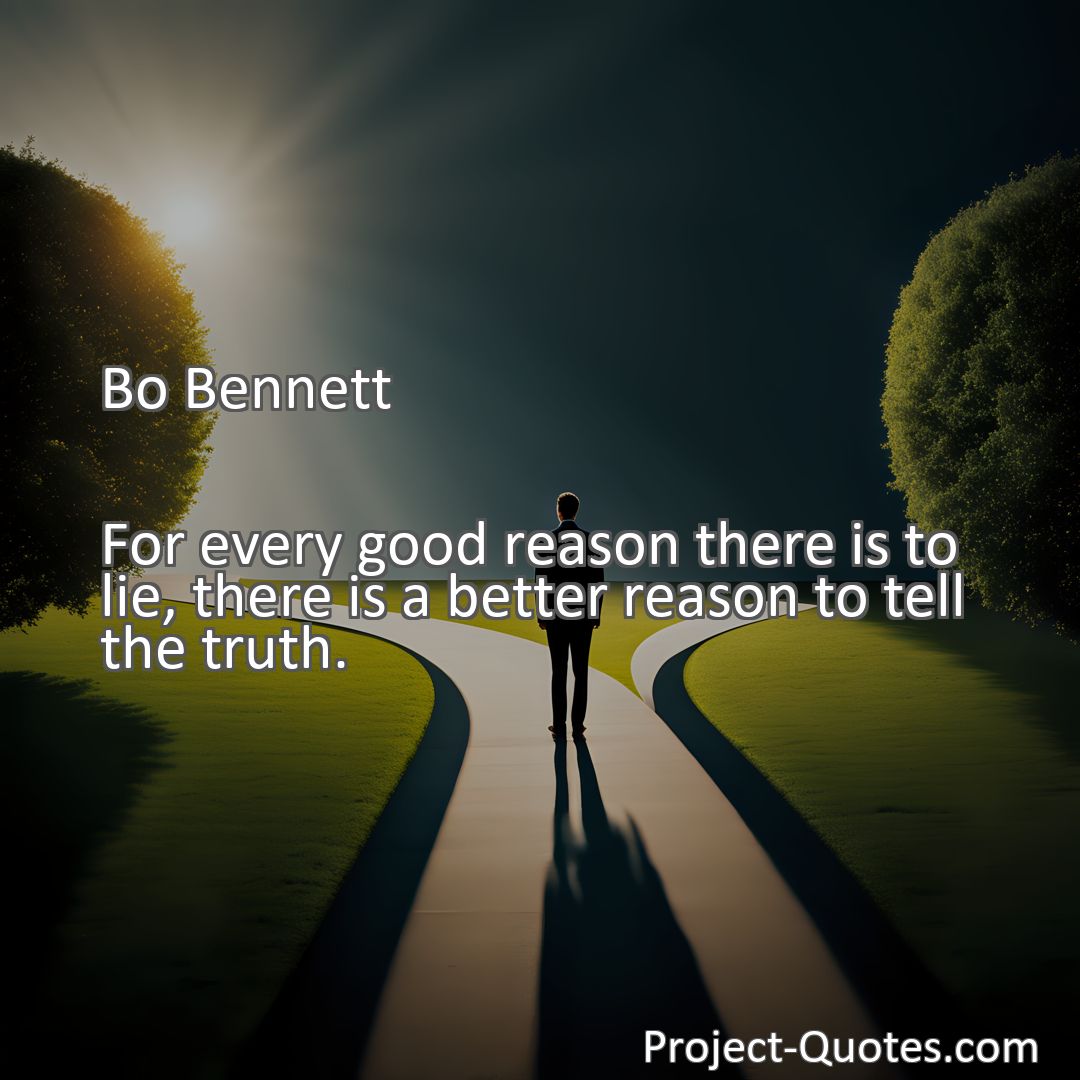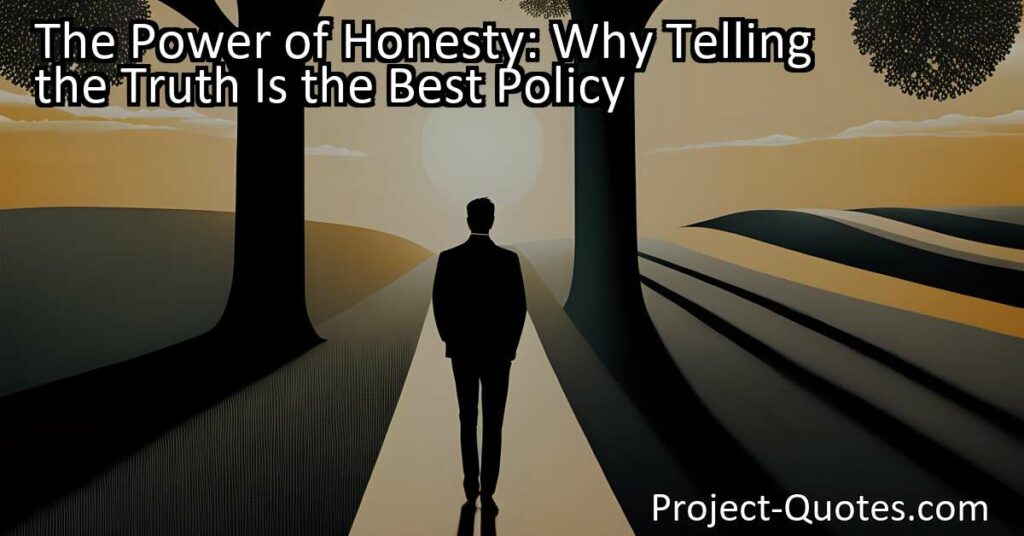For every good reason there is to lie, there is a better reason to tell the truth.
Bo Bennett
The Power of Honesty: Why Telling the Truth Is the Best Policy Have you ever been in a situation where you thought a little white lie might save you from trouble? Lying might seem like an easy way out, but the truth is, lies can grow and complicate things over time. Being honest, even when it’s tough, builds trust, shows maturity, and leads to a happier, more peaceful life. So, remember, honesty is the best policy, even if a little white lie might seem tempting.
Table of Contents
Meaning of Quote – For every good reason there is to lie, there is a better reason to tell the truth.
Have you ever been in a situation where you thought a little white lie might save you from trouble? Maybe you’ve considered it to avoid hurting someone’s feelings or to get out of a sticky situation. We’ve all been there at some point. But let’s dig a little deeper into what Bo Bennett, an author and entrepreneur, said: “For every good reason there is to lie, there is a better reason to tell the truth.”
At first, lying can seem like the easy way out. If you didnt do your homework, telling your teacher that your dog ate it could buy you some time. If you accidentally broke your friends favorite toy and you’re worried they’ll be mad, saying it wasnt you might keep the peace for a little while. But the thing is, lies have a funny way of growing and getting more complicated over time.
Every time you tell a lie, you have to remember what you said and to whom you said it. That means keeping track of the story you made up. Now, this isnt just exhausting; it also means that there’s a chance for your story to fall apart. If people find out youve been lying, it could hurt your relationships and make it harder for others to trust you. Trust is like the glue in friendships and family relationships; without it, things can start to fall apart.
On the other hand, truth-telling can feel tough, especially if you’re worried about how others will react. But the truth has a certain power to it. When you’re honest, you don’t have to remember any made-up stories because the truth stays the same no matter how many times you tell it. It’s simpler and less stressful in the long run.
Being honest also builds your character. It shows that you’re someone who takes responsibility for your actions. It might surprise you, but people tend to respect you more when you’re open about your mistakes or when you express your true feelings. Its a sign of maturity, and even though its tempting to think that adults have it all figured out, the reality is that everyone, no matter their age, respects someone who can tell the truth.
Now, let’s think about trust again for a second. Imagine you have two friends: one who always tells you the truth, even if it’s not what you want to hear, and another who tells you little lies to make you feel better. Which friend would you trust more? Most likely, you’d trust the honest friend because you know they’re being real with you, even when it’s tough.
There’s also something else about honestyit can actually make you happier. Lying can be stressful and can make you feel guilty, but telling the truth can give you a sense of peace. It’s like when you clean up your room after its been messy for a while; everything just feels better when it’s in order. Being honest helps clear up the messiness that lies create in your life and in your head.
Have you ever heard of the phrase “the truth will set you free”? It’s a pretty popular saying, and it gets to the heart of why truth is so important. When you’re honest, you’re free from the worry of keeping up a lie. You’re able to face reality as it is, not as you’ve pretended it to be. This kind of freedom is really important for living a happy and healthy life.
It’s also worth considering the long-term effects of lying versus telling the truth. The odd lie might not seem like a big deal at the moment, but over time, if you get used to bending the truth, it can become a habit. A habit of dishonesty can lead you down a tricky path. Imagine if everyone lied about the little thingshow would we ever trust each other on the big stuff? Society relies on trust, and that starts with individuals deciding to be truthful.
Now, Bo Bennetts idea doesnt mean you should be brutally honest all the time without considering peoples feelings. Theres an art to being truthful without being hurtful. Its about finding a kind way to express the truth. If your friend gets a haircut and you don’t really like it, instead of lying and saying it’s the best haircut ever, you could say, “It’s so cool that you tried something new with your hair!” That way, you’re focusing on a positive aspect without lying.
Remember, everyone makes mistakes, and no one is perfect. If you’ve told a lie, it doesn’t make you a bad person. But it does give you an opportunity to make a better choice in the future. The next time youre tempted to tell a little white lie, pause and think about it: Why do you feel like you need to lie? What would happen if you told the truth instead? More often than not, you’ll find that honesty really is the best policy.
Let’s circle back to Bo Bennett’s thought: For every good reason there is to lie, there is a better reason to tell the truth. It’s a good quote to have in your back pocket for those times when you’re stuck deciding between an easy lie and a difficult truth. Choosing honesty might require more courage, but in the end, you’ll strengthen your relationships, build a solid reputation, and feel better about yourself. So, the next time you’re in a bind, remember that the truth is not just the right choice; it’s the choice that leads to the best version of yourself.
I hope this quote inspired image brings you hope and peace. Share it with someone who needs it today!


